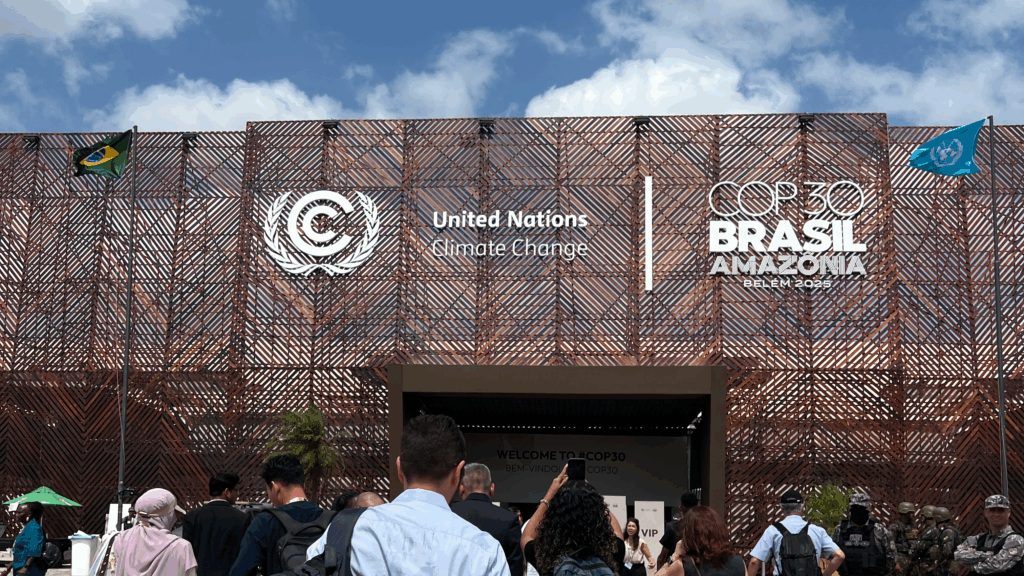
Gender-responsive land rights framework for climate action

Description of the project:
With increased pressure on land exacerbated by climate instability, women’s secure land rights can be an accelerator for achieving the goals of multiple global agendas. The Strengthening Gender-Responsive Land Rights project aims to increase the capacity of civil society and policymakers to integrate gender and land tenure perspectives into their programmatic, policy and advocacy work and create linkages across the relevant climate frameworks to strengthen global norms on women’s land rights that can influence national and local policies and programs.
Climate impact:
Studies have demonstrated the potential for gender-responsive tenure security to enhance the likelihood of women, men and communities to invest in and make use of land in ways that strengthen adaptive capacity and help mitigate climate change. Strengthening women’s land rights, as well as the rights of men and communities, is also imperative for disaster risk management and the overall management of climate-induced migration and displacement.
Gender impact:
Since 2015, Landesa has conducted analyses, awareness and advocacy programs for integration of gender-responsive land rights frameworks into climate discourse and commitments. UNCCD COP13 agreed to mainstream gender dimensions into efforts to stop land degradation and develop a gender plan of action – critical gains for progress in the work of UNCCD. Similarly, national reviews increased recognition that giving women access to land tenure improves SDG 15 – life on land – related actions.
Scalability / replicability:
When gender-responsive land rights frameworks are integrated and adapted into climate change agendas, it influences policies at scale where subsequent shifts at the national and sub-national levels can support hundreds of millions of people. Gender-equal land rights and clear tenure security have the potential to decrease poverty and food insecurity; empower women and decrease gender inequality; and enhance sustainable land management and sustainable communities and cities.
read the latest from our network
We work across regions and movements in deep solidarity. Together, we’re building collective advocacy to global problems.


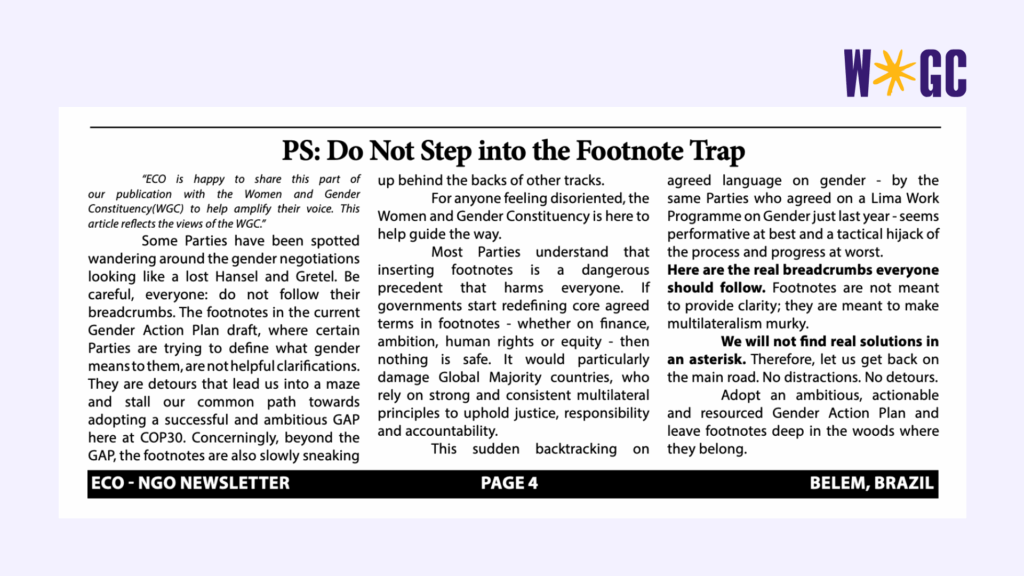
PS: Do Not Step into the Footnote Trap
19/11/2025
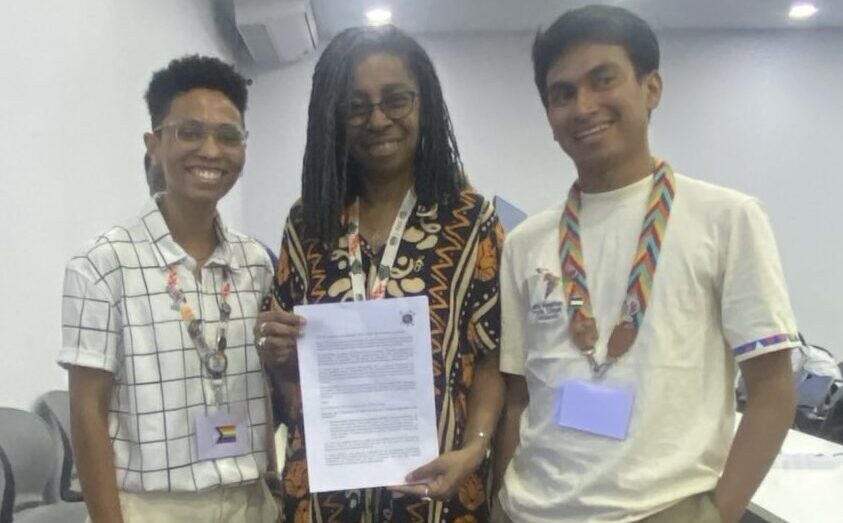
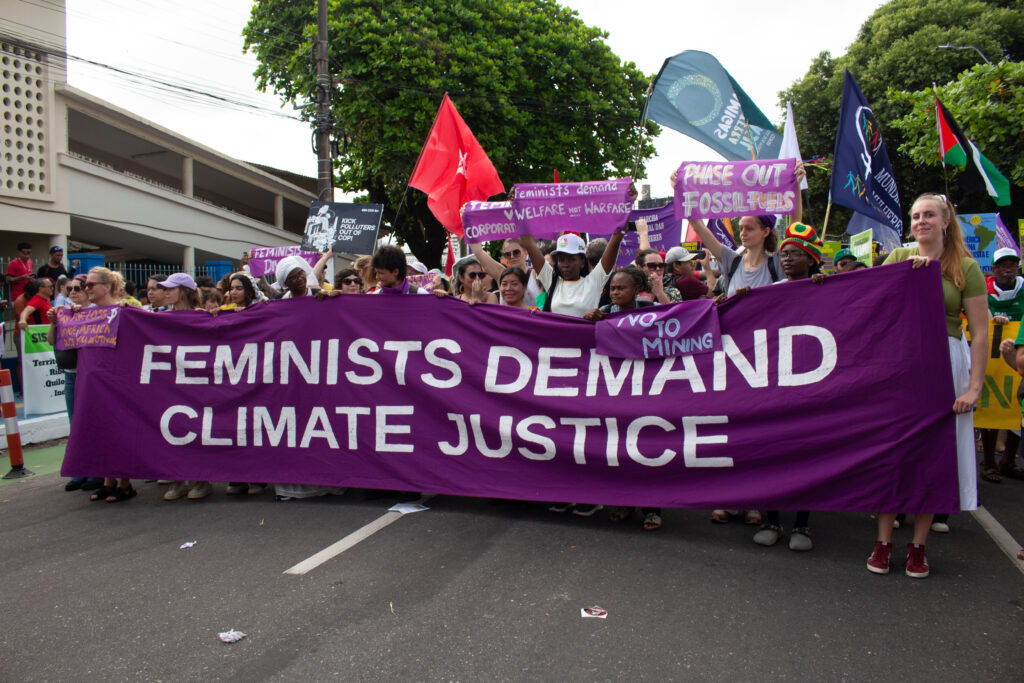
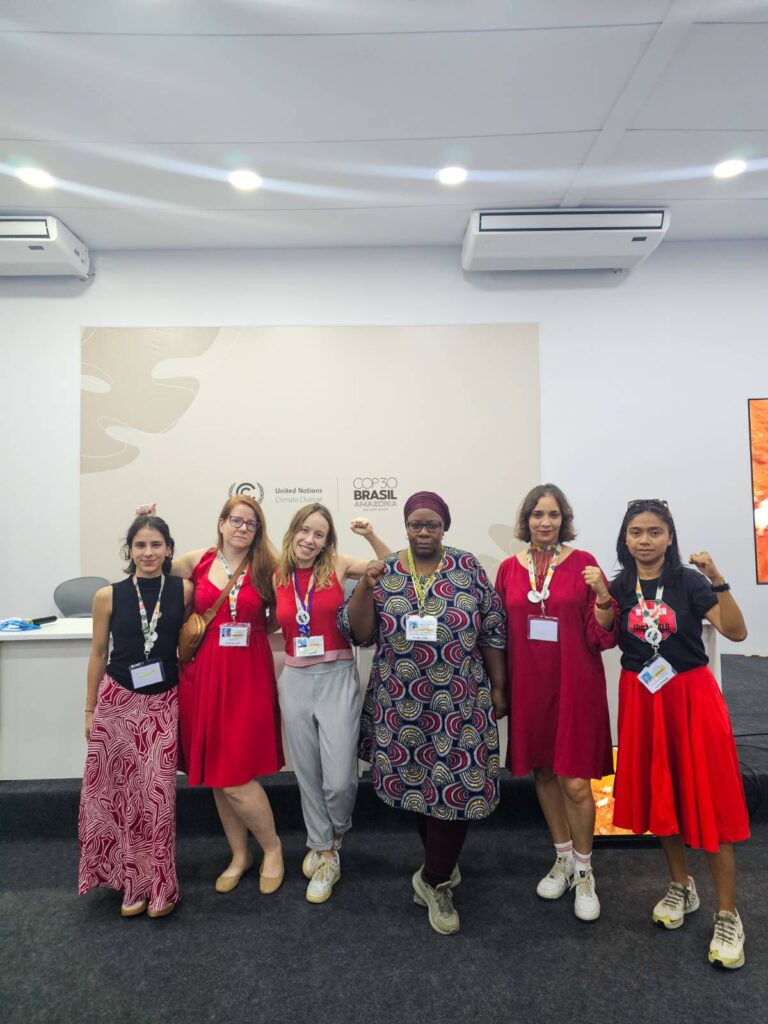
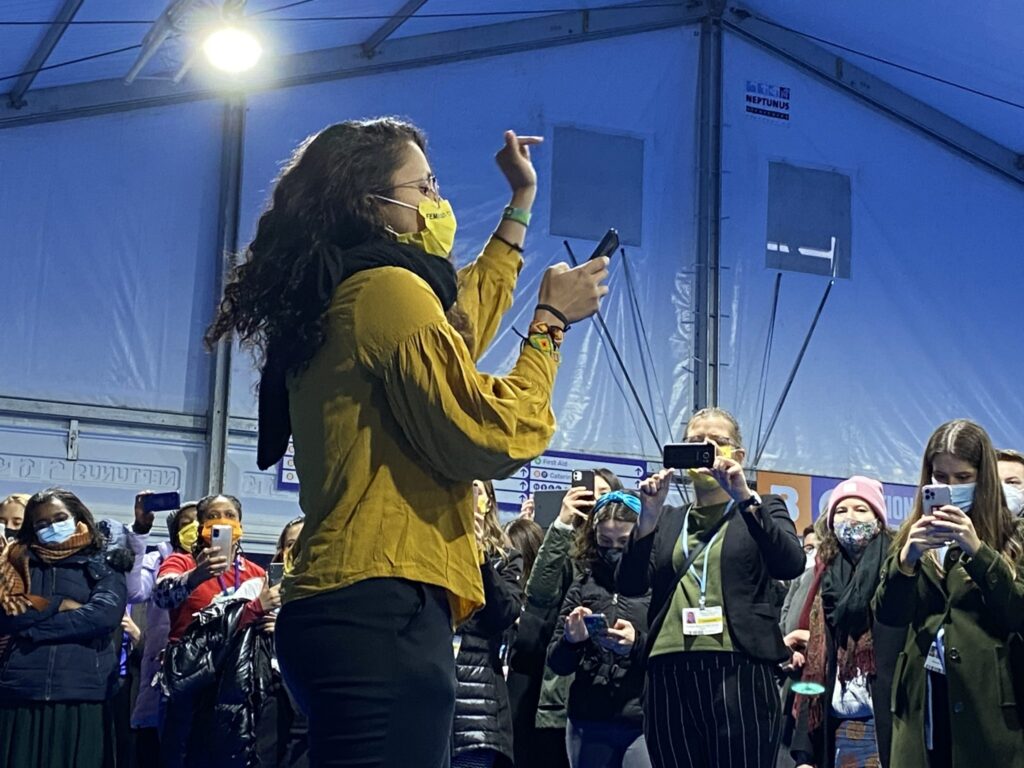
Gender Just Climate Action requires truth
12/11/2025



Nov 11 Action Alert: Gender Justice Day
10/11/2025
